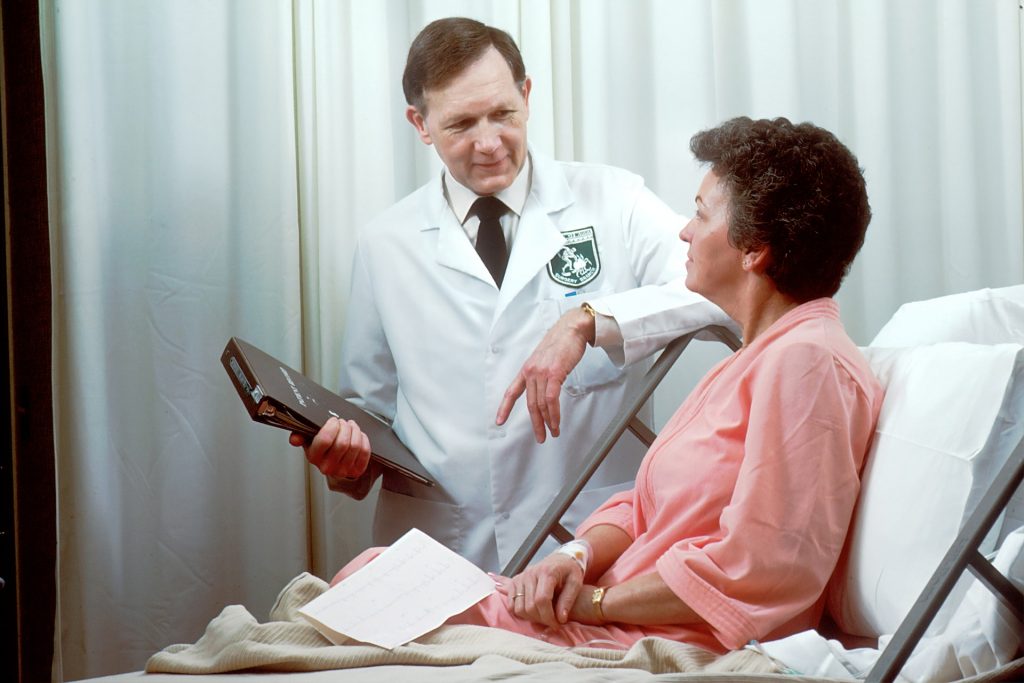What do doctors and other medical staff need to know, who would like to move to New Zealand?
On the one hand, many medical specialities are on the skill shortage list in New Zealand. Theoretically, it means that by finding a job in the healthcare sector, you will not have problems obtaining a Work Visa. The employer will not have to prove that they were unable to find any local specialists for your position. And when you start working on a Work Visa, you can apply for permanent residence.
More details on who and how can receive residency in New Zealand in our article.

Work as a doctor in New Zealand
To work as a practising physician in New Zealand, you need to obtain a local New Zealand registration.
To do this you need:
- Very good knowledge of English and the availability of IELTS Academic 7.0-7.5
- Get a New Zealand doctor’s license by completing the qualification process, which includes personal interviews, and assignments (coursework and exams). The number of assignments, the cost of registration and other nuances are determined individually, after the interview and review of your documents (evidence of experience and education) in the Medical Council of New Zealand.
We want to note that this is a complicated process that takes quite a lot of time, sometimes several years. Unfortunately, Kiwi Education cannot help with the receipt of a doctor’s license in New Zealand, because everything has to be done internally in the Medical Council of New Zealand. Detailed information on registration you can find on their official website.
Even if you decide to confirm the qualification of a doctor, having completed training in New Zealand – this can take a very long time, since few subjects you have already passed will be credited to it, and you will have to learn them almost from scratch. In this case, universities consider each candidate separately.
Possible ways of moving to New Zealand for doctors and other medical personnel:
Language courses for doctors in New Zealand
You may come to attend language courses to tighten up your English to the required level, and in parallel pass the interview and deal with the registration process, which will be specific to your personal case. You will also have the opportunity to get the right to work 20 hours a week. You will not be able to work in medicine, however, without registration. More information about the most profitable language courses and opportunities for work.
Confirmation of the doctor’s qualification through training
Having passed IELTS Academic to the required 7.0-7.5 points (depending on the sphere), you can apply to universities or state institutions of New Zealand in your specialisation. After evaluating your education and other data, the admissions office will tell you how long it will take for your training, how much it will cost and if there are available places for you. Everything is decided on an individual basis, but most often this is a long training period of several years.
Alternatives for healthcare professionals in New Zealand
We have selected for you a number of possible alternative training options, one way or another related to health. This is a kind of retraining for one, one and a half or two years of training. During this time, you can earn extra money, but not in positions that require licensing. At the end of any of these courses, you receive a Post Study Work Visa, which allows you to work in the field of the acquired education. For many, this option may become the main one in the future, or the opportunity to extend your stay in New Zealand to concurrently confirm your medical qualifications. To apply for these programs, IELTS Academic must be submitted for 6.0, 6.5 or 7.0 points, depending on the program. In some universities, it is possible to replace IELTS with a free internal test.
If you are coming with family, then it is worth considering the training options at Level 9 or higher. Then your partner will have a working visa for the duration of your education, and school children will be able to attend public schools for free.
- Healthcare Management – This education involves administrative work in the healthcare sector, working with clients, selling medical equipment or products, caring for people in need, and promoting healthy lifestyles and counselling.
- Social and community services – Specifically Social Work requires licensing and long-term training. But there are other variations, for example, work in social centres in the role of an officer, help care for people in need and other similar directions.
- Medical and laboratory technicians – You can master technical skills for working in laboratories, such programs are also available. Some of the specialities require licensing, but it is possible to get it just during the study.
- Sport, exercise and nutrition – You can become an expert in the field of physical culture and related medical supervision. It is also possible to make a bias in the culture of nutrition.
- Health Informatics – Work on the analysis of medical data and work with information arrays in medicine.
List of possible positions for healthcare workers
251311 Environmental Health Officer
134299 Health and Welfare Services Managers nec
251999 Health Diagnostic and Promotion Professionals nec
224213 Health Information Manager
251911 Health Promotion Officer
251312 Occupational Health and Safety Adviser
134213 Primary Health Organisation Manager
512211 Health Practice Manager
224214 Records Manager
225412 Sales Representative (Medical and Pharmaceutical Products)
134214 Welfare Centre Manager
511111 Contract Administrator
511112 Program or Project Administrator
149913 Facilities Manager
141912 Retirement Village Manager
512111 Office Manager
149212 Customer Service Manager
411711 Community Worker
411712 Disabilities Services Officer
411713 Family Support Worker
411714 Parole or Probation Officer
411715 Residential Care Officer
411716 Youth Worker
251112 Nutritionist
311213 Medical Laboratory Technician
311299 Medical Technicians nec
By the code of each speciality, you can find a description of the official duties on the ANZSCO.
Level 9 programs in the field of healthcare
1,5 – 2 years of education are available at universities with an average cost of NZ $ 28,000-35,000 per year, as well as public institutions from NZ $ 20,000 for the year:
- University of Auckland
Master of Health Leadership - The University Of Waikato
Master of Health, Sport & Human Performance - University of Otago
Master of Travel Medicine - Wintec
Master of Science (Sport and Exercise Science) - EIT
Master of Health Science
Level 8 health programs
1 year of education, at universities from NZ $ 28,000 per year, as well as in public institutions from about NZ $ 20,000 for the year, and private institutes from NZ $ 18,000 per year:
- University of Auckland
Postgraduate Diploma in Health Sciences - University of Otago
Postgraduate Diploma in Health Informatics
Postgraduate Diploma in Health Management - AUT
Postgraduate Diploma in Health Science
Postgraduate Sport and Exercise study options - University of Canterbury
Postgraduate Diploma in Health Sciences - Massey University
Postgraduate Diploma in Public Health - Unitec
Postgraduate Diploma in Applied Practice - EIT
Postgraduate Diploma in Health Science - Wintec
Postgraduate Diploma in Health and Social Practice
Postgraduate Diploma in Sport and Exercise Science - Otago Polytechnic
Postgraduate Diploma in Applied Science - Southern Institute of Technology (SIT)
Postgraduate Diploma in Applied Health Sciences (Wellness and Rehabilitation)
Level 7 health programs
1 year of study, at universities from NZ $ 28,000 for the year, as well as in public institutions from about NZ $ 16,000 for the year and private institutions from NZ $ 12,000 per year:
- AUT
Graduate Diploma in Sport and Exercise - Southern Institute of Technology (SIT)
Graduate Diploma in Sport and Exercise - Toi Ohomai
Diploma in Health and Rehabilitation
Graduate Diploma in Infection Risk Management - Ara Institute
Graduate Diploma in Laboratory Technology - Weltec
Graduate Diploma in Addiction, Alcohol and Drug Studies - Aspire 2 International
Diploma in Health Services Management - NZSE
Diploma in Community Health Care and Support - Сornell Institute
Diploma In Health (Advanced) (Applied Management)
We recommend that you watch the current special offers on our website in the Discount section. For exact prices and detailed information, contact Kiwi Education.
More about the education system in New Zealand.
More information on the difference in universities in New Zealand.



